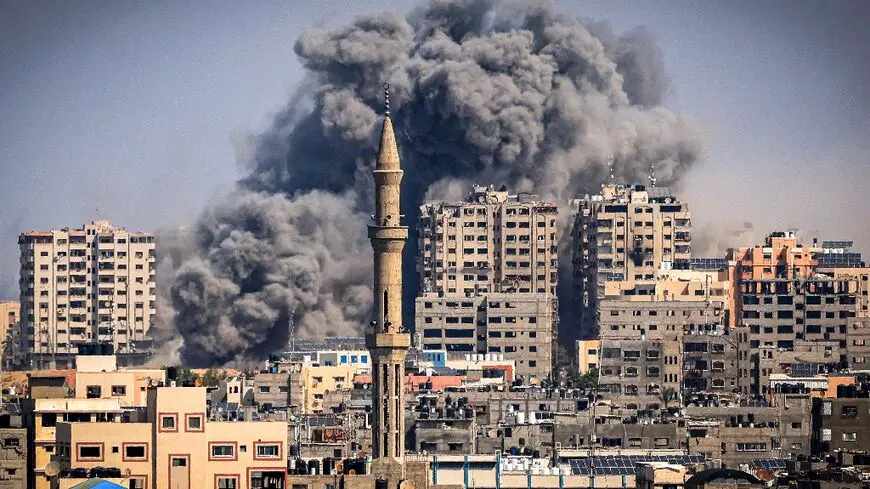
- Home
- India
- World
- Premium
- THE FEDERAL SPECIAL
- Analysis
- States
- Perspective
- Videos
- Sports
- Education
- Entertainment
- Elections
- Features
- Health
- Business
- Series
- In memoriam: Sheikh Mujibur Rahman
- Bishnoi's Men
- NEET TANGLE
- Economy Series
- Earth Day
- Kashmir’s Frozen Turbulence
- India@75
- The legend of Ramjanmabhoomi
- Liberalisation@30
- How to tame a dragon
- Celebrating biodiversity
- Farm Matters
- 50 days of solitude
- Bringing Migrants Home
- Budget 2020
- Jharkhand Votes
- The Federal Investigates
- The Federal Impact
- Vanishing Sand
- Gandhi @ 150
- Andhra Today
- Field report
- Operation Gulmarg
- Pandemic @1 Mn in India
- The Federal Year-End
- The Zero Year
- Science
- Brand studio
- Newsletter
- Elections 2024
- Events
- Home
- IndiaIndia
- World
- Analysis
- StatesStates
- PerspectivePerspective
- VideosVideos
- Sports
- Education
- Entertainment
- ElectionsElections
- Features
- Health
- BusinessBusiness
- Premium
- Loading...
Premium - Events

x
According to Palestinian sources, nearly 7,700 people have been killed in Israeli attacks in retaliation for Hamas’s attack on Israel on October 7, killing 1,400, most of them civilians. File pic
Pointless UN resolutions and pedantic debates have their place, but diplomacy needs to immediately stop the merciless bombing of Gaza, and start creating a state for Palestinians
Of course, there should be an immediate ceasefire in Gaza. According to Palestinian sources, nearly 7,700 people have been killed in Israeli attacks in retaliation for Hamas’s attack on Israel on October 7, killing 1,400, most of them civilians. If an eye for an eye was what Israel sought, it has already got five times as many it required to meet this medieval norm of ocular justice.
What attends on the dispute over the propriety of India abstaining on a UN resolution calling for a ceasefire in Gaza is an entire array of moral questions that transcend sanguinary equivalence. India abstained, after the defeat of an amendment, moved by Canada and supported by India, diplomatic rows over the Nijjar killing notwithstanding, to condemn the Hamas attack. But what is essential is not so much pursuit of moral clarity amidst the fog of war as a swift end to the ongoing violence and an institutional framework for peace.
Pointless UN resolutions and pedantic debates have their place, but the urgent imperative is diplomacy to stop the merciless bombing and strafing of Palestinian civilians, and begin a process of creating a state for Palestinians.
Resistance movement and terrorist organisations
Was the Hamas attack a terrorist attack? It most unequivocally was. To say this taints, in the eyes of many, solidarity with the Palestinian cause. Congress MP Shashi Tharoor was criticised and later disinvited to some solidarity meets, after he used the term terrorist to describe the Hamas at a pro-Palestine rally in Kerala. Tharoor deserves credit for standing his ground, and not caving in to pressure to take the easy way out and just stand with Palestine, without condemning terror in the name of Palestinians.
To appreciate the damage takeover of a resistance movement by a terrorist organisation can wreak, one only needs to look at the experience of the Tamil minority in Sri Lanka. The Liberation Tigers of Tamil Eelam, or LTTE, decimated the leadership of virtually every other organisation that sought to champion the Tamil resistance to Sinhala chauvinism that denied Lankan Tamils equal citizenship in their country.
Prabhakaran’s terror outfit, which killed Rajiv Gandhi, among others, became the face of Tamil resistance to oppression, after the elimination of other Tamil outfits. This harmed, rather than helped, the Tamil cause. The first Rajapaksa government pulverised the LTTE and killed uncounted numbers of Tamil non-combatants as well. Tamil rights remain truncated today. These bloody consequences of Sinhala chauvinism have rendered Sri Lanka into a basket case, whereas its high level of social development, comparable to Kerala’s, should have enabled the island to become the most prosperous nation of South Asia.
Origins of Hamas
Hamas is an Israeli creation, much as the Taliban and al Qaeda are successors to the Mujahideen, Islamic zealots promoted by the West, specifically, the US, with the help of Pakistan, in its effort to mobilise all available forces to drive the Soviets out of Afghanistan in the 1980s. Israel wanted to divide the Palestine Liberation Organisation, with its secular membership (remember, George Habash, Yasser Arafat’s associate and rival, a Christian, was one of the most important leaders of the Palestinian movement) and leftist ideology, and promoted an Islamist resistance using Muslim Brotherhood elements, and this later evolved into the Hamas.
You can look this up yourself, from news stories in the New York Times and the Wall Street Journal.
When we condemn the Hamas as a terrorist organisation, would it be fair to ignore its origin story, and refrain from condemning Israel itself, for its machinations against the PLO? Would it be fair to ignore the killing of the Israeli prime minister and former army chief, Yitzhak Rabin, who had signed the peace deal with Yasser Arafat, by Israeli extremists?
The Iran story
Would it be fair to ignore the tragedy of reform in the Islamic world being crushed under the weight of Cold War rivalries? The most evolved civilization of the Islamic world, Iran, saw intense democratic ferment, in the aftermath of World War II. Incensed at foreign control of its oil wealth — Britain derived more revenue from the Anglo-Iranian Oil Company than Iran did — Iran nationalised its oil in 1951.
Within two years, American CIA and its British counterpart Special Intelligence Services, engineered a coup. Democracy was overthrown and the Shah took over the government. Thousands of Iranian Communists and other democratic activists were killed, jailed or otherwise neutralized. The Americans installed Saddam Hussain as their puppet in Iraq. He obliged with a similar purge of democratic forces.
Political repression in Iran led to religion alone surviving as a site of resistance in that country. The outcome was the Islamic Revolution of 1979. The Shah was replaced by Ayatollah Khomeini. The dread the Americans had for the possibility of Soviet-supported democratic organisations in Arab lands acting as stalking horses for Communism spurred them to sponsor and support authoritarian kings, emirs and other potentates as rulers in West Asia and North Africa.
Complex history
Should this historical background to the failure of democratic Palestinian organisations to secure political support from Arab regimes be glossed over?
Can the trauma suffered by Jews in Europe in the 19th and the early 20th century be ignored? The prejudice that resonates even in The Merchant of Venice, and frequent pogroms that fostered among European Jews a desire for a Jewish state free from persecution were not the handiwork of Arabs or Muslims. Large numbers of Jews lived peacefully with Muslims across the Arab world, till Israel was created. Should this history be forgotten?
Unfortunately, a resolution at the UN calling for an immediate ceasefire cannot capture all this historical complexity.
End mindless violence
The Netanyahu government’s run-in with the judiciary, its patent surrender to hard right factions, and failure to provide security to ordinary Israelis prods the prime minister to act more savagely than a more secure leader of Israel would have.
Israel’s well-wishers should urge a swift end to the mindless violence against the Palestinian people that would feed the fire of jihad across the world. India must join the diplomatic effort to end the war and start forming a Palestinian state.
(The Federal seeks to present views and opinions from all sides of the spectrum. The information, ideas or opinions in the articles are of the author and do not necessarily reflect the views of The Federal)
Next Story


